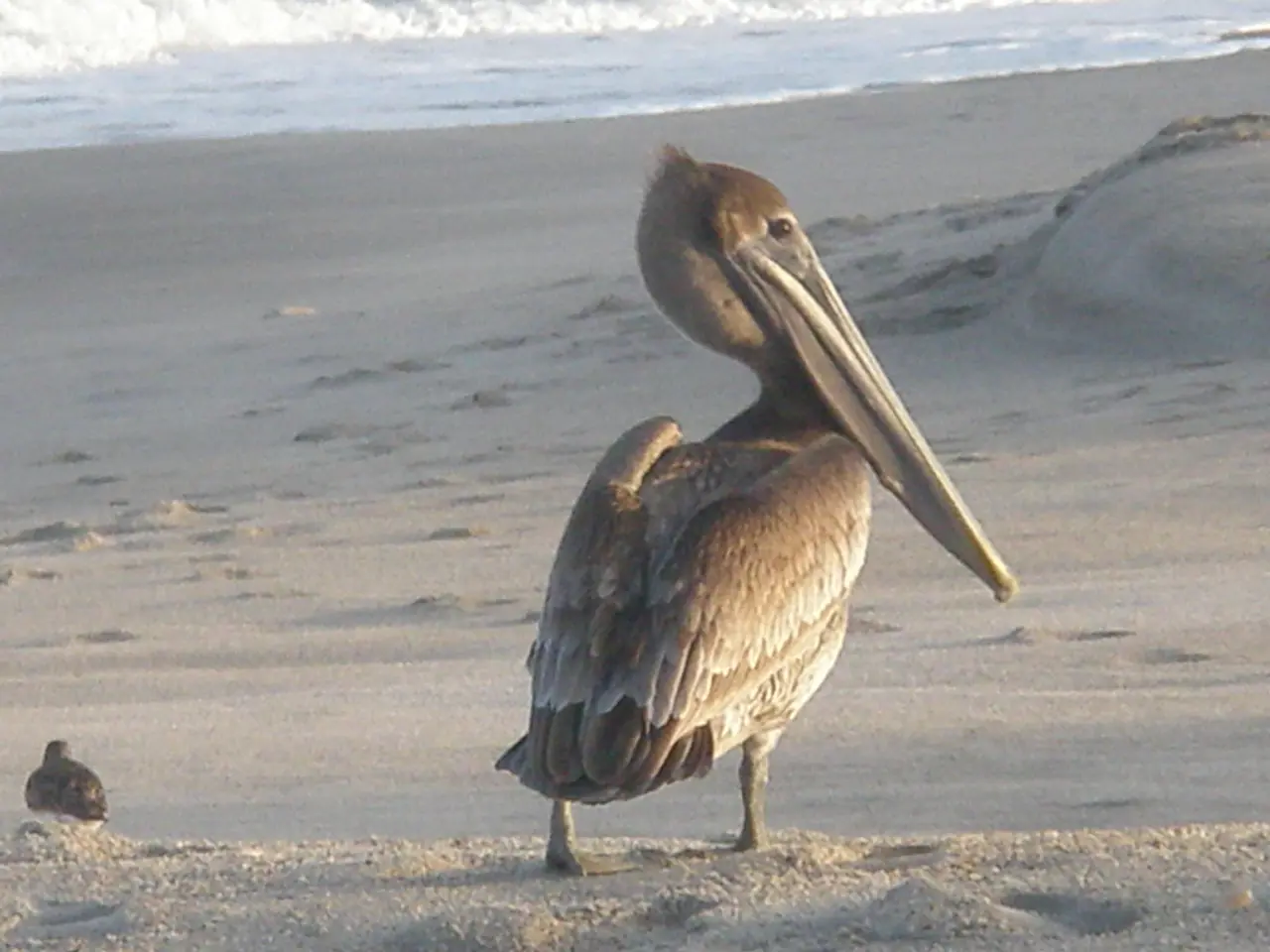Loosened rules for wolf management in Germany: A simplified approach to wolf culling
Government Official Rainer Outlines Strict Guidelines for Wolf Population Control - Agriculture Minister Rainer unveils definitive regulations concerning wolf hunting quotas.
After a recent amendment passed by the EU Parliament, the protection status of wolves across the EU, including in Germany, has been adjusted. This change in protection status allows for easier management of wolf populations, including more flexible rules for wolf culling.
- The Wolf in Europe
- Alois Rainer
- EU Parliament
- Wolf culling
- Germany
- Agriculture Ministry
- CSU
In a response to increasing reports of wolf attacks on farm animals in various European countries, the agricultural sector has been calling for simpler conditions to manage wolf populations. Germany's Bonn-based Federal Agency for Nature Conservation listed 1601 wolves in the 2023/24 observation year, a significant increase from the previous year. With over 5000 farm animals at risk due to conflicts with wolves in 2023, many EU member countries are eager to implement new regulations to improve the situation.
The Agriculture Ministry plans to adapt existing hunting laws to incorporate wolf management. This adjustment may lead to a streamlined authorization process for hunting wolves, potentially making it easier for farmers to address problems without the administrative burden of DNA testing for specific animals[1][4]. The new rules will also empower regional authorities to devise targeted strategies for managing wolf populations, balancing ecological concerns with agricultural interests[4]. It's important to note, however, that wolves will still be considered a protected species under this new framework, with culling only authorized when conservation considerations are taken into account[2][3].
While public opinion remains mixed on the subject, agricultural stakeholders support the changes due to the growing wolf population. Conversely, a considerable portion of the public views wolves as a vital part of Germany's wildlife and does not see them as a significant threat to livestock[4]. Regardless, the revised rules for wolf management aim to create a balance that addresses the concerns of both sides.
[1] EU Parliament votes to adjust wolf protection status across the European Union[2] Germany to simplify its wolf culling rules: Agriculture Minister explains new regulations[3] How the revised EU rules for wolf management will impact Germany[4] New EU rules for wolf management in Germany: Public opinion and predictions for the future
Wolf Management in Germany under New Regulations
The new wolf management regulations in Germany have several key elements:
- The EU Parliament recently voted on May 8, 2025, to revise the protection status of wolves to "protected" across the EU. This alteration enables EU member countries to cull wolves more efficiently, provided conservation considerations are considered [2][3].
- In Germany, the Agriculture Ministry intends to integrate wolves into existing hunting laws, potentially shortening the authorization process for hunting wolves [1][4].
- To address local needs such as livestock protection and community conflicts, wolves can now be hunted under the new regulations, but population conservation must still be considered [2][3].
- State-level wolf management strategies will permit regional authorities to control wolf populations more effectively [4].
- These changes are in line with recent EU decisions and are expected to be finalized into national German law soon after the EU regulations come into effect in May 2025 [4].
The Nation Remains Divided on Wolf Hunting
Public sentiment in Germany remains divided regarding the issue of wolf hunting. While agricultural stakeholders favor the new changes, many members of the public perceive wolves as part of Germany's wildlife and do not see them as a significant risk to livestock [4]. Due to this divided opinion, it's crucial for authorities to devise a balanced approach that efficiently addresses farmers' concerns while conserving the species as required under the new regulations.
- Under the new regulations, the EU Parliament has revised the protection status of wolves to "protected," allowing EU member countries, such as Germany, to manage wolf populations more effectively, including through wolf culling, while considering conservation requirements [1][2].
- The German Agriculture Ministry plans to incorporate wolves into existing hunting laws, which may lead to a streamlined authorization process for hunting wolves and help farmers address conflicts [1][3].
- In response to a growing wolf population and increasing reports of attacks on farm animals, regional authorities are empowered to devise targeted strategies for managing wolf populations under the new regulations [3].
- Despite the divided public opinion on the issue, the revised regulations aim to create a balance that addresses the concerns of both agricultural stakeholders and wolf enthusiasts while ensuring the conservation of wolves [4].








